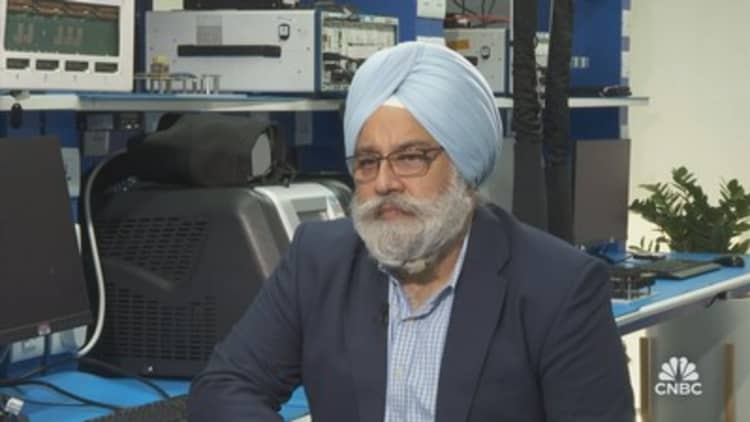CEO of a huge recruitment firm is sending a warning on India's youth unemployment
More fresh graduates in India are being employed in startups, but more jobs are needed to combat high levels of unemployment, according to Foundit

Youth aged 15 to 29 make up 83% of all unemployed people in India.
Gcshutter | E+ | Getty Images
India's startup ecosystem is poised for promising growth as the country works toward boosting economic growth and entrepreneurship — but more jobs are needed to combat high levels of unemployment.
That's according to the CEO of one of the largest recruitment firms in the country, who warned that overall unemployment rates continue to climb.
India's unemployment rate rose to 8.1% in April compared to 7.4% the previous month, according to the Centre for Monitoring Indian Economy.
The number of startups in India jumped 37% in April compared to a year ago, leading to a 14% increase in the number of jobs from startups, latest employment trends data from Foundit showed.
The report highlighted that the IT services sector had that most job opportunities, and more than 50% of new startup jobs were catered toward fresh university graduates.
"In the last few years, we had an absolute boom in startups coming out of India and now have a lot of startups in every space," Foundit CEO Chandra Garisa told CNBC.
India has always had a "quality of talent," he said.
"The access to capital and creation of an ecosystem between government bodies and investors have created a flywheel in itself," Garisa said, referring to the investment flows entering the country that have given India's startup space a boost.
While India's push to be self-sufficient in manufacturing and IT is giving young people more career routes and choices, more needs to be done to combat India's high youth unemployment, Garisa said.
India's high youth unemployment
India, the world's most populous country, has the largest youth population in the world.
Young people between the age of 15 to 29 make up an astounding 83% of all unemployed people in India, the "India Employment Report 2024" showed.
According to the latest government data, there were 43.3 million university enrollments in fiscal year ending March 2022.
"Over the last year, companies haven't invested in entry level talent because of pressures on hiring and profitability, and would rather go for talent that could be readily put to use," Garisa told CNBC.
"I don't think entry level hiring is at a level it was two to three years ago," he added, explaining that companies will not "invest in growth … as long as the macro situation remains a little muted."
The number of jobs in the internet sector fell 3%, jobs in fintech decreased by 10% while the number of jobs in education were 8% lower, Foundit data showed.
This showed that despite the increase in startups and other companies, funding, regulatory challenges and a mismatch in skills still remain hurdles to overcome, the recruitment firm said.
Boost in manufacturing jobs
Across all of India, the number of jobs in the manufacturing sector saw the highest surge and jumped 31%, largely driven by a boost in investment inflows in autos, chemical, pharmaceutical and food processing industries, the survey showed.
"Whether its automobile, electronics or consumer goods, there is a lot of activity and production in manufacturing and production, and more global companies are adopting a China plus one strategy," Foundit's Garisa said.
The Biden administration has encouraged American companies to move electronics and technology manufacturing operations out of China and into friendlier countries in Asia-Pacific, such as India.

"Earlier, every company used to blindly go to China for the manufacturing, but in the post pandemic world ... India usually happens to be the plus one on strategy for most of the organizations," Garisa said.
Foundit data also showed the information technology sector, which includes both hardware and software, experienced a 9% growth in jobs, thanks to higher investments to overcome the shortage of IT talent in the country.
"There is definitely a layer of technology driving all this innovation in manufacturing, irrespective of which sector," Garisa noted.

 Astrong
Astrong 






























